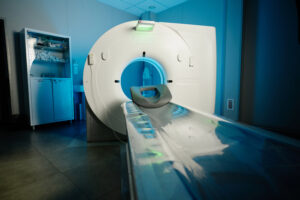During holiday celebrations, consuming plenty of food gives everyone a sensation of heavy belly, indigestion, nausea, discomfort and a bloated feeling. Large portions also make the digestive system work harder, leading to bloating.
Stomach bloating is when your belly inflates and you feel uncomfortable. It is often a result of having too much gas that clogs up your gastrointestinal tract (GI tract). You may attribute bloating to eating certain foods and drinks such as fizzy drinks, broccoli, beans or too many fruits and vegetables. While this is a common cause of bloating, there are times when your bloating could signal something more serious.
Table of Contents
ToggleHow do I know if my bloating is serious?
Knowing the difference between occasional bloating and a serious condition is important. Fortunately, several telltale signs can help you understand if your bloating is something to be concerned about. Here are five signs that indicate it may be time to see your doctor:
1. Weight loss
Weight loss alongside continual bloating should be explored by your medical provider, especially if the weight loss was not part of a lifestyle change. Weight loss can be caused by tumours that press on the intestines, making you feel full after just a small amount of food.
2. Changes in bowel movement
Out-of-the-ordinary changes in your bathroom habits, such as continuous diarrhea, needing to go more frequently, or blood in your stools, may indicate that you have something which requires medical attention.
Constipation may cause or exacerbate symptoms of bloating. Painful bloating could signal a bowel obstruction or a blockage in the small or large intestine.
Bloating with frequent tummy pain and the runs can often be a sign of inflammatory bowel diseases such as Crohn’s disease or ulcerative colitis, both of which cause inflammation of your digestive tract.
Swollen belly accompanied by unusual stools could be a sign of cancers like breast cancer, pancreatic, colon or stomach cancer, if cancer appears along the lining of the abdominal cavity or liver disease.
3. Fatigue
Continual tiredness combined with bloating can be attributed to many things but shouldn’t be ignored. If you have Coeliac disease, eating foods containing gluten can trigger diarrhea, abdominal pain and fatigue.
4. Appetite changes
If you’re starting to feel full when eating less or find you lose your appetite, speak to your doctor about your symptoms.
Frequent indigestion that does not appear to be associated with food or other apparent causes could be a sign of something more serious. Possible causes include a stomach ulcer, cancer or liver failure.
5. Continual bloating
If you have bloating that doesn’t seem to reside and is really painful, it is advisable to get advice from a health professional. A bloated stomach and stomach fullness are symptoms of excessive gas in the stomach.
The most common foods that cause problems are wheat, gluten or dairy. Lactose intolerance is associated with many digestive symptoms, including bloating. Lactose is the main carbohydrate in milk.
If your stomach bloating is caused by diet or alcohol, you can help prevent it by making some lifestyle changes.
Getting Yourself Tested For Stomach and Bowel Concerns
Whether you’re experiencing one of the symptoms mentioned above or just want to be proactive with your health, preventive testing is always a good idea.
A colonoscopy is the test commonly used to investigate or diagnose bowel cancer. It allows a doctor to look at the entire colon using a long, flexible tube with a tiny camera on the end. During a colonoscopy, the doctor can also take biopsies (samples of tissue) or remove polyps that can become cancer over time (called pre-cancerous polyps). It is one of the most sensitive tests available for colon cancer screening, but many consider the procedure invasive and very uncomfortable.
A virtual colonography, also known as a CT colonography, is an X-ray that checks for cancer, polyps, and ulcers in your colon and rectum. A virtual colonography is a more comfortable, less invasive, and equally effective form of a colon health screening compared to a traditional colonoscopy. It is less invasive than a colonoscopy because the test does not involve inserting a tube all the way around the colon.
Virtual colonography has shown remarkable potential in detecting colon and colorectal cancers. With the use of advanced imaging technology, it can provide detailed and accurate images of the colon’s interior, allowing doctors to identify polyps, ulcers, or abnormal tissue that could be indicative of cancerous developments.
Because Prevention Is Always Better Than A Cure
Regular cancer screening such as with virtual colonography is useful, whether or not you’re experiencing persistent stomach discomfort such as bloating.
InvestMed offers thorough health packages, including a cancer screening package designed to meet the individual needs of our patients. You can choose between a risk-specific package or a comprehensive package to analyze your health and wellbeing.
Do you have more questions about virtual colonography? Call (236) 766-0997 or click here to book your appointment online today.





